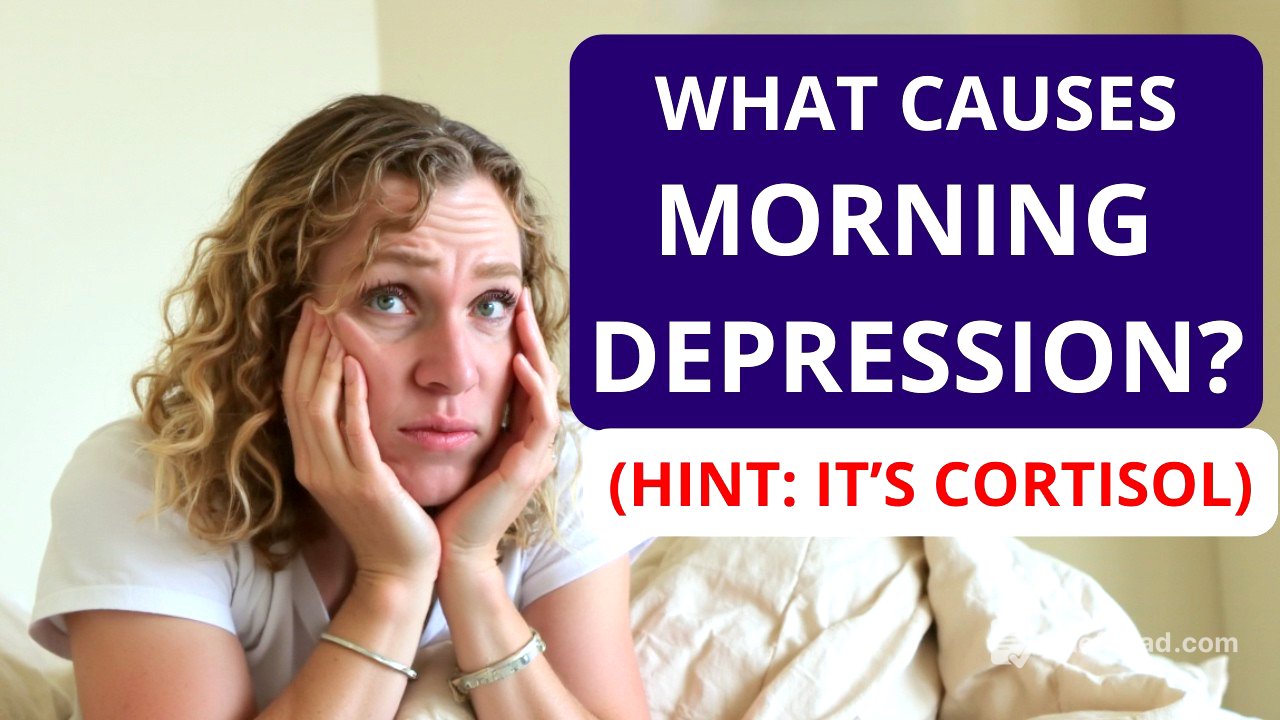TLDR;
The video addresses why depression symptoms often feel worse in the morning, a phenomenon known as diurnal variation. It explores five biological causes, including cortisol spikes, circadian rhythm misalignments, inflammation, sleep disorders, and physical illnesses. The video also provides five treatment strategies, such as light therapy, managing the cortisol awakening response, improving sleep hygiene, talk therapy, and medication adjustments. The key takeaway is that morning depression has biological roots and can be managed with targeted interventions.
- Diurnal variation in depression is common and linked to hormonal fluctuations.
- Biological factors like cortisol, circadian rhythm, and inflammation play significant roles.
- Treatment strategies include light therapy, movement, sleep hygiene, therapy, and medication.
Intro [0:00]
The video introduces the common experience of depression symptoms being most severe in the morning. It emphasizes that this isn't merely psychological but is often rooted in significant hormonal shifts related to the circadian rhythm. The presenter promises to discuss five biological causes of morning depression and offer five potential solutions.
Symptoms of Morning Depression [1:06]
Many individuals experience heightened depression symptoms in the morning, characterized by difficulty getting out of bed, exhaustion, hopelessness, lack of motivation, brain fog, irritability, and struggling with simple tasks. This phenomenon, known as diurnal variation, is influenced by hormone fluctuations throughout the day.
What Causes Morning Depression Symptoms [1:40]
Morning depression is linked to the body's internal clock, or circadian rhythm, which regulates sleep, heart rate, body temperature, energy, alertness, and mood. Cortisol levels are typically highest upon waking, which can trigger anxiety. This cortisol spike, combined with the inaction associated with depression, can lead to a "frozen" stress response, potentially causing a shutdown mode known as hypoarousal, where the body conserves energy to protect from perceived pain, leading to feelings of numbness and immobility. Genetic factors, specifically differences in the RORA gene, can also misalign the body clock, leading to conditions like delayed sleep phase, common among depressed individuals. Additionally, an inflamed hypothalamus, a brain gland regulating hormone timing, may contribute to morning depression, with larger glands correlating to more severe depression.
Treatment [9:09]
Effective treatments for morning depression include counterintuitive methods like sleep deprivation combined with light therapy to reset the circadian rhythm. Light therapy alone, using sunlight or a light box for 15-30 minutes, can be effective for many. Micro-dosing melatonin earlier in the evening can also help, provided a reliable source is used. Timing medications to align with their effects (sleepy at night, waking in the morning) is beneficial. Managing the cortisol awakening response by initiating movement immediately upon waking can counteract the freeze response. Breaking down tasks, congratulating oneself for small achievements, and incorporating positive elements into the morning routine can also help. Planning enjoyable activities for later in the day can provide motivation. Improving sleep hygiene by reducing caffeine, alcohol, and screen time can enhance sleep quality and alleviate depression. Talk therapy can help individuals build a more fulfilling life, while medication, particularly SNRIs, may be more effective than SSRIs for morning depression.
Summary [15:33]
Morning depression is a real condition with biological underpinnings, and it's important to acknowledge that it's not just psychological. Seeking help from doctors and therapists is crucial. Implementing small, manageable changes can significantly improve symptoms. The presenter encourages viewers to focus on one resonating aspect of the video and implement it gradually, emphasizing that consistent small changes can transform depression from overwhelming to manageable or even resolved.









